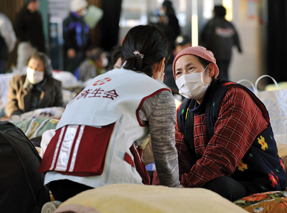Six months post-disaster, challenges remain for Japanese medicine
The first result of the massive earthquake and tsunami that hit Japan this past March was obvious and undeniable.
The first result of the massive earthquake and tsunami that hit Japan this past March was obvious and undeniable: 15,000 dead, thousands more missing and injured. Near the coast, medical personnel scrambled to deal with the immediate aftermath, while areas farther inland sent personnel and supplies. But as the immediate crisis period passed, Japanese physicians began dealing with long-term effects, such as limited availability of medications for control of chronic diseases, fears of radiation exposure, and lack of support for mental health needs. In our cover story, Charlotte Huff examines the continuing effects of the disaster on physicians and on patients.
Earlier this year, the Alzheimer's Association and the National Institute on Aging issued long-awaited guidelines on Alzheimer's diagnosis, a welcome step forward for science that may present clinical dilemmas for practicing internists. The guidelines mention biomarker testing and introduce a new disease category, mild cognitive impairment (MCI) due to Alzheimer's, both of which, the guideline authors stressed, are meant for research purposes only. But some internists may find themselves explaining to patients that biomarker tests aren't yet a viable way to diagnose Alzheimer's disease and that effective treatment for early-stage disease remains on the horizon. Stacey Butterfield interviews experts in the field to find out how the new guidelines should and shouldn't be applied in clinical practice.
Finally, this issue also includes two articles on combating hepatitis. The first gives an overview of a recently launched federal initiative that targets primary care physicians as vital partners in fighting viral hepatitis, which the CDC estimates affects 4.4 million Americans. The goal of the initiative is to raise awareness of the problem and thereby increase screening, diagnosis, and access to treatment. A second article offers a potential way to improve on that last front: On page 9, we take a look at Project ECHO (Extension for Community Healthcare Outcomes), an innovative care model pioneered by an ACP Fellow. Begun to improve care for patients with hepatitis C in New Mexico and later expanded to sites in two other states, Project ECHO pairs primary care physicians in underserved areas with specialists by using teleconferencing and case-based learning.
Have you needed to interpret the new Alzheimer's guidelines for anxious patients, or do you have other ideas on ways to improve access to specialty care for the underserved? Let us know.
Sincerely,
Jennifer Kearney-Strous




